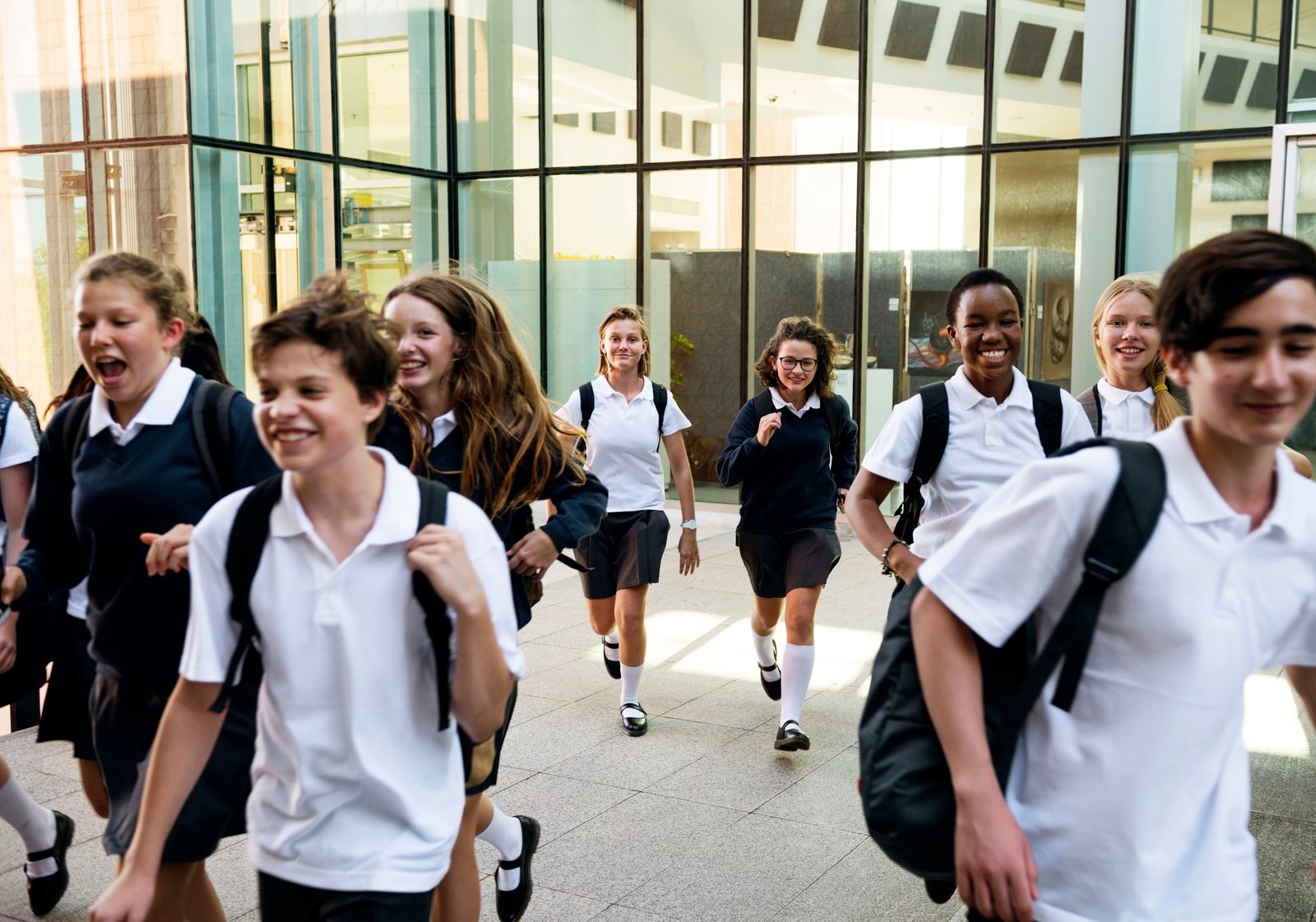Module 8 of the Covid Inquiry has confirmed children were an afterthought for the Government and shown why children need new rights and an apology

Last week, the Covid Inquiry heard evidence from the highest levels of government about the treatment of children during the pandemic.
Alongside Save the Children UK, Just for Kids Law, the Children’s Rights Alliance for England, and Child Poverty Action Group, the Centre for Young Lives was designated as a Core Participant in Module 8, the Children and Young People Module. Collectively we are referred to as the ‘Children’s Rights Organisations’ (CROs).
Core Participant status has allowed us to question some of the witnesses who have appeared at the Inquiry and to make our own submissions focusing on how the mistakes made during the pandemic are not repeated.
Over the last four weeks of Module 8, amongst many other experts and key decision makers, the Inquiry took oral evidence from former Prime Minister Boris Johnson, former Education Secretary Sir Gavin Williamson, and our own Founder, Baroness Anne Longfield.
The Inquiry heard about the litany of failure by key decision makers to prioritise or even recognise children’s rights and needs in their decision making. It heard how the safety net around children was taken down without proper consideration given to the implications or the outcomes for their wellbeing, learning, and the impact it could have on their future life chances.
In different instances these decisions sometimes affected all children, as well as the most disadvantaged children, and the most vulnerable children.
We also heard overwhelming evidence that certain groups suffered disproportionately, including babies and infants, children and young people from Black and racialised communities, Looked After Children, children and young people with SEND, children in poverty, and children in the criminal justice system.
And the Inquiry heard about the context in which Covid occurred – including the increases in child poverty, the cuts to young people’s services and family support, and the rising number of children with mental health problems which all preceded the pandemic.
Some of those who have appeared argued that many of the later consequences of decisions affecting children only became clear with hindsight. But we do not accept that. As Baroness Longfield said in 2020 and early 2021, as then Children’s Commissioner for England, many of the negative outcomes were obvious at the time the decisions were made by ministers. Warnings went unheeded and, as this Module has shown, children were not considered by Government very much at all, beyond being potential spreaders of the virus.
Nowhere was this disinterest more obvious than in the fiasco around school closures and reopening. Reopening pubs, zoos, and theme parks before schools in Summer 2020, was not only absurd but deeply damaging to many children. The processes around the second school lockdowns were confusing and chaotic.
Baroness Longfield’s evidence session went into this in more detail, but what this Module has revealed to both children and parents, who so often struggled during this period of uncertainty, is that the decision-making processes that had such an impact on their lives were inadequate and often based on political calculation and not what was in the best interest of children and families.
Moreover, when the government did have a chance to recompense children for the sacrifices they made through a recovery package, it was inadequate. Both the Department for Education and No10 failed to persuade the Treasury to provide the kind of investment that could have made a real difference.
The subsequent statistics around school attendance, behaviour, exclusion, and widening regional attainment gaps highlight the inadequacy of the post-Covid response and its ongoing damage.
The Inquiry also heard about an issue close to our heart: play. We heard how in England, there was effectively no consideration given to children’s right to play, and the implications for children’s well-being of lack of access to play when lockdown decisions were taken. The Inquiry heard from Playing Out how children were harassed simply for leaving their homes to play and exercise outdoors – with disadvantaged children inevitably suffering worse.
Playgrounds were closed without thought - though when we raised the lack of access to play with Boris Johnson at the Inquiry, he appeared completely unaware that children were prevented from playing outdoors during lockdown at all. The then Children’s Minister also did not feel she had any responsibility for play as a policy area.
One of our key recommendations following this Module is the need for an effective voice for children in Cabinet. Sir Gavin Williamson made only one mention of being ‘the Secretary of State, ultimately, for children’, and admitted he was excluded from many of the major policy decisions affecting children.
This lack of a strong voice for children stretched beyond education. Financial measures such as the Universal Credit uplift did not account for family size and so were only partially effective for children, and when it became clear that a replacement for the Free School Meals scheme would be needed, there was no one to persuade the Department for Work and Pensions that cash payments to bank accounts would be the best approach. Instead, they opted for a voucher scheme that left many children hungry.
Nor was there any thought or call for additional financial support that recognised the increased costs and challenges faced by families with children, beyond the replacement of free school meals.
For those vulnerable children in the secure estate, we heard how there was effectively no oversight of Secure Training Centres for six months during 2020. Once inspections did begin again, it was clear that children’s rights to education were being undermined, and children were being detained in conditions amounting to solitary confinement.
The Inquiry also heard of many other instances where the impact of decisions on children was overlooked or ignored – from the redeployment of health visitors to administrative tasks, to the emphasis on virtual visits to looked after children.
All these problems have the same root cause – a structural invisibility and de-prioritisation of children and their rights in decision making at the highest level.
Schools and other services could have opened before pubs, but they did not because key decision makers did not have to treat children as a priority.
As we argued in our closing oral submission to the Inquiry, the solution to these problems can be found in embedding a focus on children’s rights in the machinery of government – so that the Government is ambitious for children at all times, but particularly in times of emergency.
The CROs have made five key recommendations.
First, the UN Convention on the Rights of the Child must be incorporated into domestic law across the UK – directly and in full, as has now happened in Scotland. Incorporation will need to include both substantive rights, such as the right to play, and also the vital procedural safeguards such as the rights to participation in Article 12.
Second, there must be a named Cabinet Minister for Children with cross governmental oversight of children’s issues in the round, not just their educations, and responsibility for developing and delivering an overall strategy for children. The current Secretary of State for Education should become the Secretary of State for Children – or preferably Children, Schools, and Families, as was previously the case.
Third, as part of the incorporation of the UN CRC, there must be a general statutory duty for Children’s Rights Impact Assessments to be conducted when public functions are being exercised which impact on children, including a duty to ensure children are consulted and participate in their development.
Fourth, binding Child Poverty Reduction Targets must be included in the upcoming Child Poverty Strategy, with regular public reporting obligations in respect of these.
This accountability is essential for the progressive realisation of children’s rights, particularly in relation to children’s right to an adequate standard of living, but also children’s right to health, education, and play.
Fifth, the Secretary of State for Children should have lead responsibility for a children’s plan for national emergencies that includes a structured approach to key predictable decisions, such as determining under what circumstances schools, children’s centres and other essential services would close and alternatives to closure; plans for providing education and other services if schools do close, including mitigations so that disadvantaged children are not hit hardest; specific plans for early years’ provision and health visitors; and measures to safeguard children made particularly vulnerable by their circumstances, including children in prison and detained by reason of their mental health.
Children and the organisations which advocate with and for them need to participate in the creation of such a plan, including young children whose views and experiences are too often ignored.
Finally, we asked the Inquiry to recommend that the UK Government acknowledge the sacrifices made by children and apologise to children for the mistakes the Government made in failing to promote and protect their rights.
The last four weeks have been a shocking and often infuriating insight into how Government failed so many children during a national time of crisis – how secondary the needs and interests and rights of children were to Ministers, how they had no voice around the Cabinet table, and nobody fighting their corner in Downing St. It has been a masterclass in how not to best serve children and families.
We must learn from the chaos and the disinterest, and make sure children are never again a secondary concern for those in power who make such crucial decisions affecting their lives.
Jo Green is co-founder of the Centre for Young Lives















